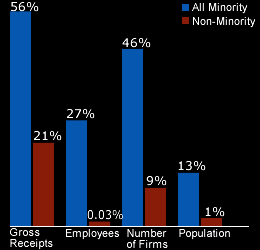Check out IRS Small Business and Self-Employed Tax Center
Your Small Business Advantage, Put Their Knowledge to Work for You
When you’re running a business, you don’t need to be a tax expert, too. But you do need some tax basics. IRS Small Business Advantage gives you the information you need to stay tax compliant so your business can thrive.
 Choosing a Tax Professional
Choosing a Tax Professional
With your new responsibilities, you may decide to hire a professional tax preparer to assist with your taxes. Enrolled agents, tax attorneys, and certified public accountants have training and expertise in federal taxes. When selecting a tax professional, ask a few questions to see if he/she offers what you are looking for:
Experience: Does the tax professional have experience in working with similar size and type businesses? Is the professional familiar with your particular line of business?
Services: Does the tax professional offer electronic filing—the safest and most efficient way to file your tax returns?
Price: What does the tax professional charge for services? If the IRS examines your return, what is the tax professional’s policy on assisting you? Is the tax professional authorized to practice before the IRS?
Qualifications: New regulations require all paid tax return preparers to register with the IRS and obtain a Preparer Tax Identification Number (PTIN). Ensure that the tax professional you choose has a PTIN.









 Be Attentive to Employee and Worker Concerns
Be Attentive to Employee and Worker Concerns Car Expenses
Car Expenses Estimated tax is the method used to pay tax on income that is not subject to withholding. This includes income from self-employment, interest, dividends, alimony, rent, gains from the sale of assets, prizes and awards. You also may have to pay estimated tax if the amount of income tax being withheld from your salary, pension, or other income is not enough.
Estimated tax is the method used to pay tax on income that is not subject to withholding. This includes income from self-employment, interest, dividends, alimony, rent, gains from the sale of assets, prizes and awards. You also may have to pay estimated tax if the amount of income tax being withheld from your salary, pension, or other income is not enough. Choosing a Tax Professional
Choosing a Tax Professional Health coverage legislation enacted in 2011 included a Small Business Health Care Tax Credit to help small businesses and small tax-exempt organizations provide health insurance coverage to their employees.
Health coverage legislation enacted in 2011 included a Small Business Health Care Tax Credit to help small businesses and small tax-exempt organizations provide health insurance coverage to their employees.

